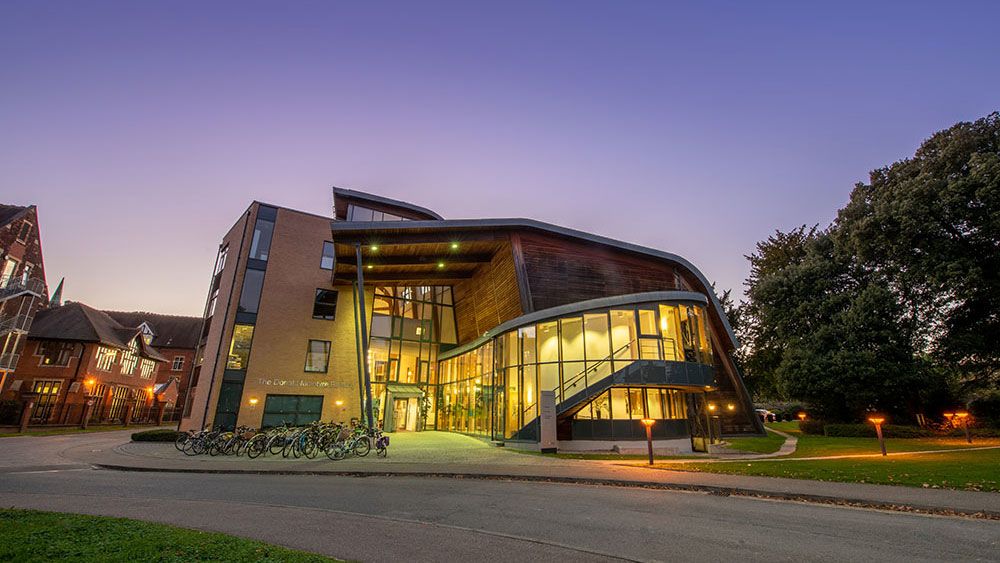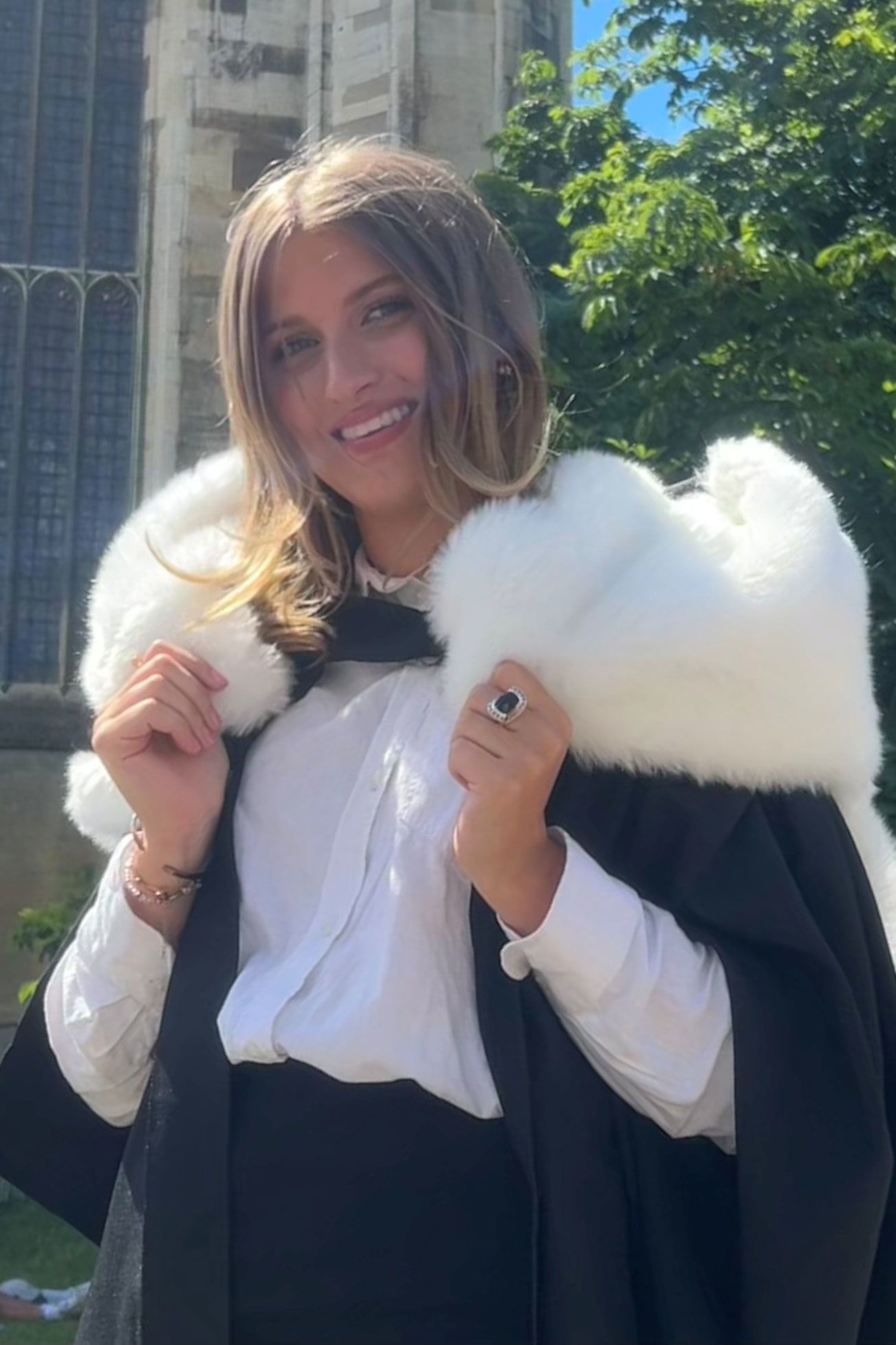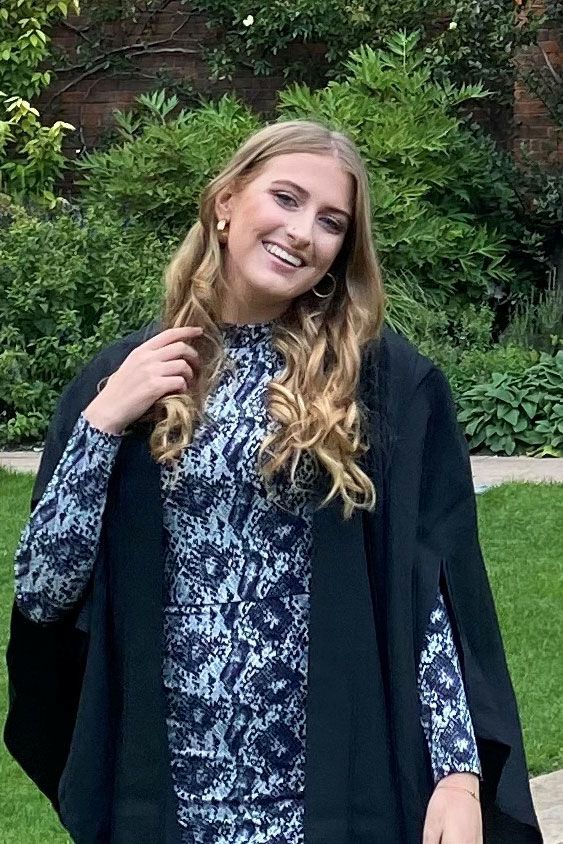What do Education graduates do next?

I never really wanted to teach – but I was interested in improving education systems.
When I was at school, I honestly had no clue what I wanted to do. I did know that I cared about education and was interested in it, but at the same time I didn’t want to be a teacher. My aunt is a teacher, both my grandparents were teachers, so I had spent a lot of time hearing about the challenges they faced.
Of course education is something that we all do and sometimes you wonder about how you might have done it differently. For me personally, I went to an International School and loved doing the International Baccalaureate, and I remember thinking, “Why don’t people do this more? It’s so much better than A-Levels!”
When I came across the Education degree at Cambridge I realised it was exactly what I’d been looking for; something that looks at the idea of education and systems of education structurally and critically. That wasn’t something that many other universities offered.
Maysie at her graduation in 2024
Maysie at her graduation in 2024
Cambridge gave me a chance to think about education in different countries and contexts.
I was already very interested in different cultures and societies. I guess that maybe came from going to a school where you had a lot of boarders from other places. We were encouraged to be curious about different ways of life, and in sixth form, my anthropology teacher really brought that to life for me.
At Cambridge I was able to pursue those interests in depth. I explored topics like girls’ education, decolonial and anti-racist approaches to education, and the ways in which knowledge is defined and shaped by those who produce it. I really appreciated that different papers on the course balance theory and practice. The theory gave me new ways of thinking – it challenged me to reflect on things that I had never really questioned before – but we were also constantly tying those ideas to real-world examples.
One thing I really loved was being taught by people from different parts of the world who have actually worked – as researchers and teachers – in the spaces that they were teaching us about. They weren’t just lecturing from a distance, they brought their own lived experiences and insights to the course. That range of voices and perspectives was really important.
Before Cambridge, I think I had an idealised view of education.... The degree opened my eyes and challenged a lot of my assumptions.
The course changed how I understood education and how I relate to it.
Before Cambridge, I think I had this idealised view of education: I thought that there was a perfect way to support children, and that it involves giving them a particular kind of protected space. The degree generally opened my eyes and challenged a lot of my assumptions. I came to understand that education is never separate from the society that you are a part of; it reflects your culture, your politics, your priorities. It can reproduce inequalities but it can also be a massive force for positive change.
One of the most powerful things I realised was that not everyone needs to be educated in the same way that I was. I had always just taken for granted the idea that everyone needs the kind of schooling that I had in order to be empowered through education. But I started to realise that a Western model of education isn’t going to work for everyone – and in fact it can actively harm societies by failing to meet local needs, or by eroding their values and knowledge systems.
That’s something that I carried into my final year dissertation. I decided to focus on Canada’s residential schools – a system of schools for Indigenous peoples which basically sought to assimilate them into Western Canadian culture. I used survivor testimonies and archival materials to understand how the system disrupted Indigenous identities but also disempowered women in particular and enforced white, patriarchal norms.
It is such an important topic and what struck me is how little it is talked about even now. The intergenerational trauma that the residential schools system inflicted is still very real. I became really absorbed in researching it; in fact, I used to put off some of my other work just so I could spend more time on my dissertation!
I now work in the Department for Education and I am still using much of what I learned on the course
After graduating I started working at DfE and am currently in ministerial correspondence, supporting responses to messages for both the Minister for Early Education and the Minister for Children and Families. So far I’ve found it a great introduction to how government works and how policy is shaped behind the scenes. Once you’re inside the civil service there is a huge amount of flexibility and mobility, so there are lots of opportunities.
The range of topics we covered on the degree course has been invaluable. More than once I’ve found myself reading correspondence and thinking, “Wait, I actually studied something about this!” That background helped a lot – not just in order to understand policy, but also in helping me to understand the context in which policy operates and how and why it is critiqued. I think the course also challenges you to think about problems deeply, and to be open to challenging your own assumptions and perspectives. That has helped me to bring fresh eyes to old problems in my work.
I’m still passionate about changing the education system! At the moment, I’m really enjoying working in an education-related civil service role and I think that’s something that I’ll keep doing for the foreseeable. But I might think about doing a Masters at some point, and if I did, I’m pretty sure I’d want to come back and do it at Cambridge.
Maysie joining the University at her matriculation in 2020
Maysie joining the University at her matriculation in 2020


